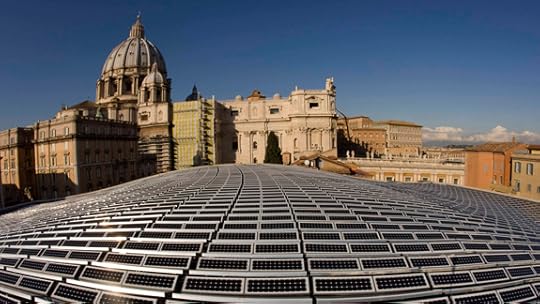Catholics and “the Energy Problem”

Catholics and “the Energy Problem” | William L. Patenaude | Catholic World Report
The moral implications of the world’s energy problem make the Church’s engagement on the subject indispensable.
When a coalition of United States
scientists issued the most recent draft of its National Climate Assessment, it
captured the attention of environmental regulators like me. Two weeks later,
the United States Environmental Protection Agency briefed hundreds of
researchers and policy-makers about findings from more than two dozen climate
indicators.
Both the National Climate Assessment and EPA’s indicators
provide more than 1,000 pages of science and significant online resources that
show trends (mostly negative, but some positive) that align with anthropogenic
climate-change models—trends in increasing temperatures; drought in some places
while, in others, wetter, stronger, and more frequent storms; changes in
agricultural yields; sea-level rise, and other disruptions to the status quo.
My professional concerns relate
to the impact of storms and rising sea levels on water-pollution control
infrastructure. As a Catholic, however, these concerns are illuminated by my
faith. This influences my reaction to mounting evidence and professional
observations of the impacts of a changing world—and this makes me wonder what
we as believers can do about it.
Certainly, the topic of
human-induced climate change brings debate. This is especially true among my
Catholic brothers and sisters who view the topic as a Trojan horse that hides
radical left-wing agendas (which it sometimes can). But given pontifical
statements on the importance of ecology and the seriousness with which organs
in the Church—like the Pontifical Academy of Sciences—consider the subject,
there is a growing responsibility for the faithful to look closely at what
science is showing, as well as to consider the moral implications of what’s
happening, who it’s happening to, and the causes thereof.
When governments and
environmental advocates consider climate change, they do so in one of two ways:
adaptation (which means learning how to live with whatever happens) and
mitigation (which seeks to reduce the causes of what’s changing). While these
categories are ultimately linked, in practice they are quite separate.
Carl E. Olson's Blog
- Carl E. Olson's profile
- 20 followers



